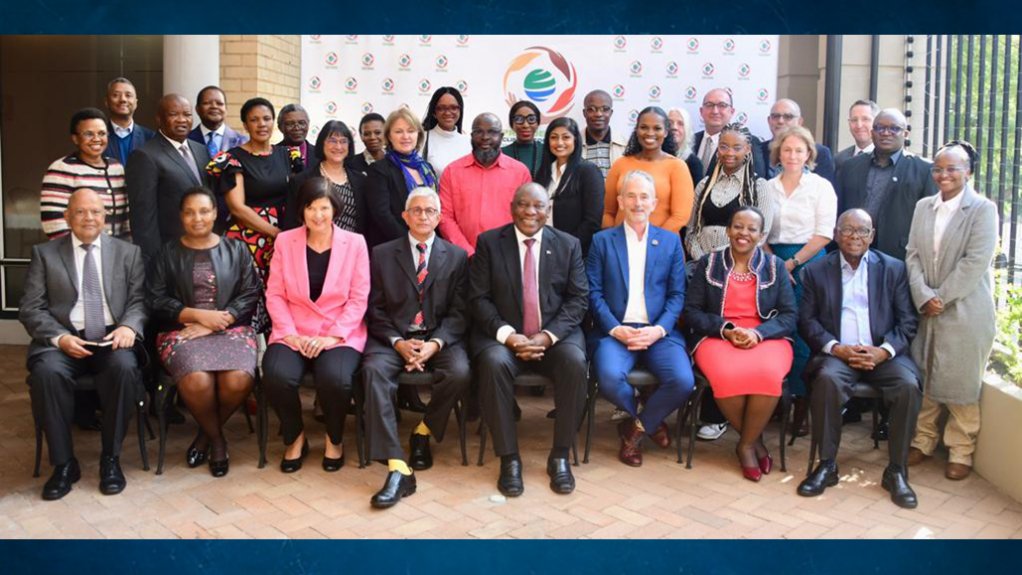Amid a likely proposal that Eskom be allowed to extend the life of certain coal power stations beyond the decommissioning dates outlined in the Integrated Resource Plan 2019, the Presidential Climate Commission (PCC), which is chaired by President Cyril Ramaphosa, reaffirmed its support for the broader reforms under way in the energy sector, as well as the Energy Action Plan (EAP).
In a statement issued following a meeting that took place in Johannesburg on Thursday, the commission expressed particular support for the creation of an independent transmission company, as well as the lifting of the cap on embedded generation, and moves to incentivise rooftop solar generation.
Also welcomed was the President’s reported reaffirmation that the country’s future energy mix would be aligned with the Just Transition Framework developed by the commission, as well as the investments prioritised under the Just Energy Transition Investment Plan (JET-IP), which was unveiled in November ahead of the COP27 climate talks in Egypt.
The plan outlines the need for R1.5-trillion in investments to support a transition away from coal, including through an accelerated roll-out of renewables, storage and grid infrastructure, as well as to support the introduction of electric vehicles and the development of a green hydrogen sector.
The JET-IP has also been endorsed by France, Germany, the UK, the US and the European Union, which have pledged to support South Africa’s decarbonisation transition with concessional financing worth $8.5-billion under the Just Energy Transition Partnership (JETP) concluded in 2021.
There are fears, however, that a proposal by newly appointed Electricity Minister Dr Kgosientsho Ramakgopa to extend the life of certain coal stations could undermine the JET-IP, which is premised on South Africa decommissioning its coal plants in line with current government policy.
Ramakgopa is finalising a plan that is likely to include delaying the decommissioning of certain stations, including Camden, on the basis of his view that new cleaner generation is unlikely to be introduced in time to close the deficit left by the closure of the stations.
He has warned that loadshedding could intensify even further if the decommissioning proceeds as currently outlined and has also cautioned that rotational power cuts could worsen as South Africa enters the high-demand winter period and could well breach the Stage 6 threshold.
The Minister has also insisted that the delay will not derail South Africa’s overall decarbonisation programme or the country’s net-zero by 2050 aspiration, but has not yet provided evidence for the claim. Instead, he is proposing that the pace of the retirements be aligned with the time it will take to build replacement capacity and take full account of the economic and social threats posed by loadshedding.
Cabinet has been briefed on various possible short- and medium-term measures to tackle loadshedding, including the coal life extension, and subsequently directed Ramokgopa to undertake a further assessment and present measures to be taken to the National Energy Crisis Committee (Necom) meeting scheduled for this week.
It is anticipated that, following the Necom meeting, Cabinet is likely to reconvene to approve the plan, which will include various supply- and demand-side interventions, including a proposal to run the diesel-fuelled open-cycle gas turbines at far higher levels, using the R8-billion approved in the recent tariff hike as well as a further R22-billion included in the recent National Treasury support package.
It is also anticipated that the President will soon confirm what powers will be transferred to Ramokgopa to support him in implementing the EAP. Given the nature of the portfolio, these powers can be transferred from either Mineral Resources and Energy Minister Gwede Mantashe or Public Enterprises Minister Pravin Gordhan, but Ramokgopa’s recent focus on Eskom-related interventions may be indicative that the powers will be transferred from Gordhan.
Should the coal-extension plan be endorsed, government is likely to have to meet with its JETP partners to explain the decision, given that it runs counter to the objectives of the partnership.
For its part, the PCC informed the President that, following extensive stakeholder consultation on the JET-IP, a resounding consensus had emerged that South Africa’s energy transition and response to the electricity crisis should be underpinned by the imperative to address socioeconomic challenges and achieve the country’s climate ambitions in line with the nationally determined contributions lodged in 2021.
However, stakeholders have also bemoaned the modest grant component arising from the JETP and called for an exploration of scaled-up sustainable social ownership models in renewable energy.
Other key stakeholder concerns raised related to energy poverty, incentives for small enterprises, the pace of decarbonisation, the role of the State and the extent of privatisation, skills development and employment, corruption, and vandalism of electricity infrastructure, as well as constraints at a local government level to implement the transition.
The PCC is still due to submit its final recommendations to Ramaphosa on the JET-IP for consideration by government.
Work is also under way separately on the JET-IP implementation plan that, if not disrupted by recent coal-extension developments, could inform the next round of funding by South Africa's developed-country partners.
EMAIL THIS ARTICLE SAVE THIS ARTICLE ARTICLE ENQUIRY
To subscribe email subscriptions@creamermedia.co.za or click here
To advertise email advertising@creamermedia.co.za or click here











